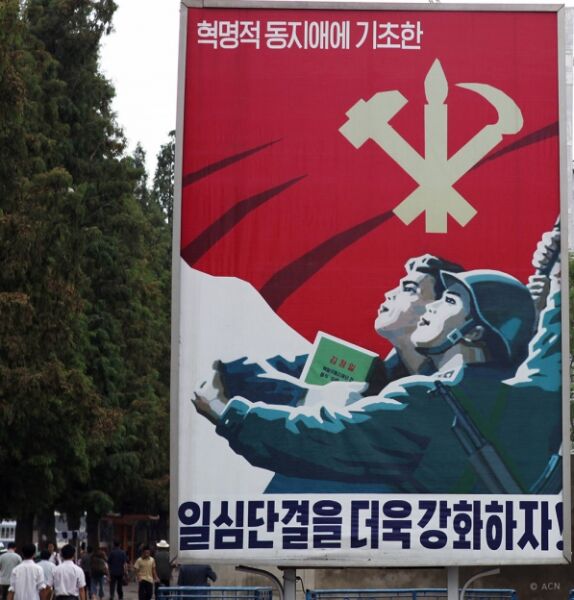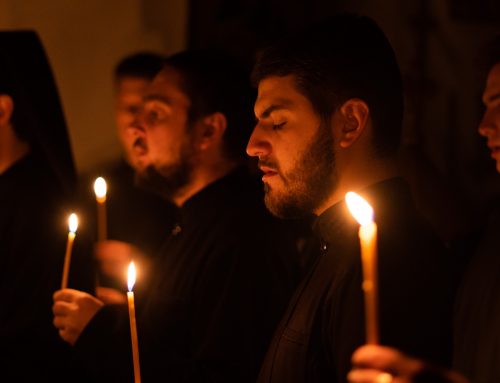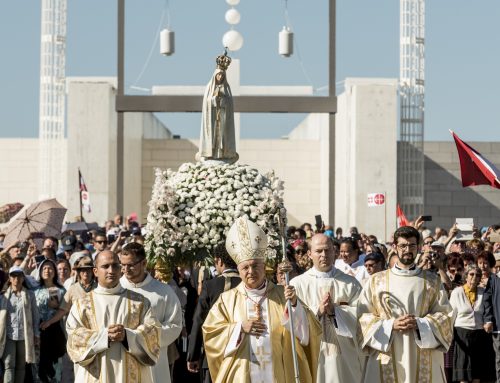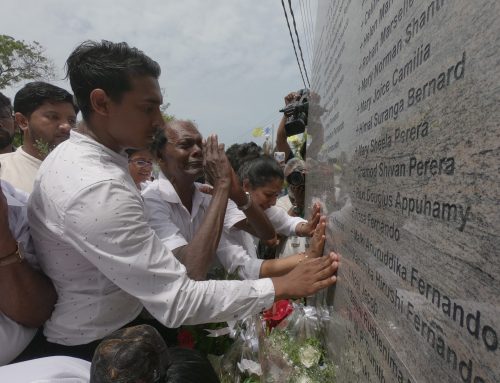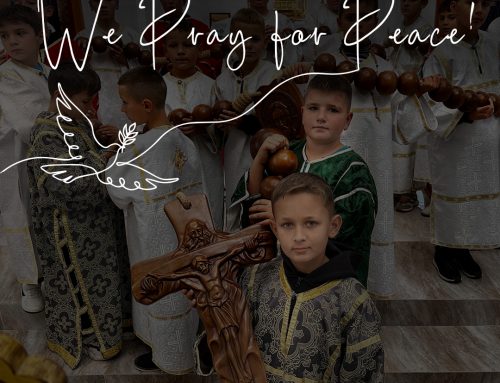Monsignor Victorinus Youn Kong-hi, 97-year-old Archbishop Emeritus of Gwangiu, believes the Catholic Church continues to grow in North Korea despite brutal persecution by the communist regime led with an iron fist by Kim Jong-un. The statement by the prelate, who was born in a village in the north of the peninsula, is significant because he will surely be one of the people who best knows the reality of the most closed country in the world.
The reference to the existence of a growing Catholic community in North Korea appears in a book, now published, with eight interviews by the Archbishop with the writer Kwon Eun-jung. In the book, “The History of the Church in North Korea”, the Archbishop recalls that the life of the Catholic community was very significant before the division of the Korean peninsula.
In fact, the region was a Japanese protectorate since 1905. With Japan’s defeat in World War II, the peninsula was divided by the United States and the then Soviet Union, giving rise to two countries: North Korea and South Korea. From there to war was a small step. The extremely violent armed conflict lasted between 1950 and 1953, when the two sides signed an armistice, placing the border on the famous 38th parallel. Since then, the two countries began to develop in totally opposite spheres. If South Korea is today a prosperous nation, with one of the most developed economies in the world, North Korea, communist, is one of the most hermetic countries, being ruled by the Kim dynasty.
One of the first consequences of the division of the country was the expulsion of the elements of the Church that were in the north of the peninsula. Victorinus Youn Kong-hi, then a young seminarian, recalls this in the book. He was at the Benedictine seminary in Tokwon, near the city of Wonsan, when the region was taken over by communist forces.
Forced to flee, he arrived in Seoul, the capital of South Korea, in January 1950. Shortly thereafter, he would be ordained a priest. Years later, he managed to travel to Pyongyang, in 1985, and met with a brother and sister, in a goodwill initiative to bring together families divided by war.
He was ordained Bishop of Suwon in 1963 and Archbishop of Gwangiu in 1973. For six years, between 1975 and 1981, Archbishop Victorinus Youn Kong-hi was president of the Episcopal Conference of Korea.
Now, with the publication of the book in which he seeks to help write the history of the Church in North Korea, the Archbishop Emeritus of Gwangiu is once again alerting the world to the existence of a clandestine Catholic Church in this country, despite the brutal repression that the authorities have always exercised over the Christian community.
Bishop Victorinus speaks of a Church that continues to “grow hidden, like the trees of the Tokwon Seminary”, and, using metaphorical language, says that if the “trees sprout new shoots on every branch each year, so do Catholics”. who hide somewhere in the north.”
The issue of religious freedom in North Korea is almost always present when talking about this country. In the latest Report on Religious Freedom in the World, published in April last year by ACN, states that North Koreans “are obliged to show total devotion to the ruling Kim dynasty”, and that the regime classifies Christians as “hostile” and looks upon them “as foreign agents”, whereby “the practice of Christianity is treated as a political crime”.
This obsession has reached such a point that North Korean propaganda has already compared missionaries “to vampires”. According to the organization Open Doors , in 2020 there would be between 50,000 and 70,000 people in North Korea imprisoned for being Christians. All those discovered will be “deported to labor camps as political criminals” and their families “will also share their fate”.

